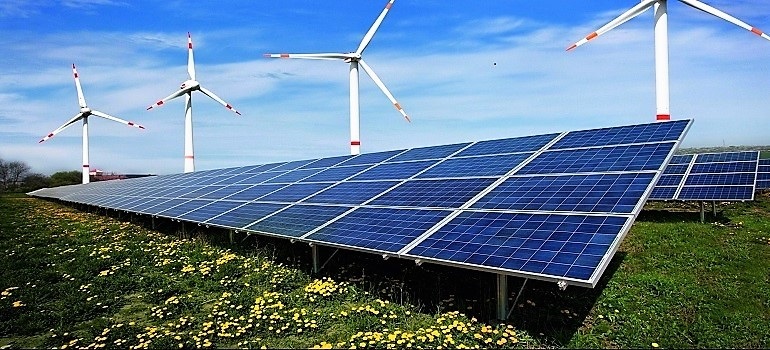
A joint venture of Indian PSU Energy Efficiency Services Limited (EESL) and UK-based EnergyPro Limited (EP) will invest USD 12 million in a new partnership with leading battery storage solutions provider Leclanché.
EESL and EnergyPro Assets Limited (EPAL) launched the new partnership at India House in London for the investment in an advanced battery storage project in Ontario, Canada, known as Basin 1 and 2.
“This partnership marks the beginning of a significant development in the energy efficiency sector. With the ever- increasing energy consumption, technologies like battery storage will go hand in hand with efficiency to balance supply and demand,? said Dinesh K Patnaik, the acting high commissioner of India to the UK.
“I am very hopeful that EPAL, with its excellent track record in driving the UJALA (UK Joins Affordable LEDs for All) initiative, will bring a revolution in the market with its advancement into battery storage projects,” he added.
The Canadian project, built and owned by Leclanché and development partner Deltro Energy, is the first utility scale energy storage facility designed to balance the Ontario power grid.
The new EPAL partnership has been described as strategically important and a step forward in meeting the Indian government’s goal of achieving 175GW of renewable energy by the year 2022, equivalent to 40 per cent of the country’s energy supply and up from 12 per cent now.
To achieve this target, India’s energy supply will be dependent on intermittent power sources and ancillary services will be required to stabilize the grid.
Battery storage will help achieve stabilization, supply power to charging stations and reduce the substantial Unscheduled Interchange (UI) charges payable by the country?s utilities and states of around USD 461.5 million annually, according to EESL.
“It has been our constant endeavor to make future-ready technology solutions accessible. With a focus on long, low-carbon initiatives globally, we have partnered with the world’s leading battery storage solution provider. We are confident that this partnership will help bring a new era of clean energy solutions for the world,” said Saurabh Kumar, EESL Managing Director and Chairman of subsidiary EPAL.
The Indian government recently launched an ambitious investment programme in new energy, both domestically and overseas, and the Leclanché and Deltro Project forms a part of this investment agenda.
The domestic plans are driven by the government’s target of increasing the contribution of renewables to the country’s energy supply. As part of this, the government has mandated that by 2030 all vehicles on its roads will be electric, the most aggressive such target in the world. Battery storage helps stabilize grids, which is a challenge as they become increasingly dependent on intermittent renewable energy sources. Storage also reduces the operational costs of grids and defers and reduces future infrastructure costs.
“Working together with EESL on this project has highlighted some unique synergies between the companies. We are exploring many additional ways to integrate Leclanché’s advanced lithium battery solutions into stationary storage systems as well as new mobility applications such as EV charging stations, full-electric buses and urban transportation systems,” said Leclanché CEO Anil Srivastava.
“At EnergyPro we are excited to be working with our JV partner EESL and Leclanché on this significant utility scale energy storage project. We see it as a first step to deploying energy storage solutions at a range of scales, something that will be essential to the energy transition in all economies,” added Steven Fawkes, Managing Partner at EnergyPro Limited.
Earlier this year, the Indian government had announced that it would invest 155 million pounds in clean energy initiatives in the UK’s public and private sectors through EPAL.
To date, EPAL’s UK initiatives include the affordable LED lighting scheme called UJALA, targeted at social housing associations in London, and the acquisition of two energy savings companies serving seven clients in the education and leisure sectors.
Source: PTI

